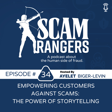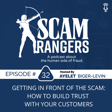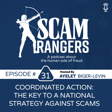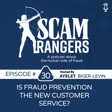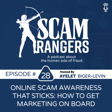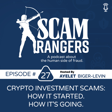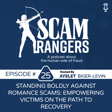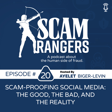
Fighting Scams on a Global Scale - Collaborating to Win, With Jorij Abraham, Global Anti Scam Alliance
In this episode of Scam Rangers, Jorij Abram, the CEO of Scamadviser and General Manager of the Global Anti-Scam Alliance (GASA), talks about his journey into fighting scams and shares some valuable insights about the scams landscape. Jorij discusses the common types of scams, including online shopping and investment scams, and stresses the importance of knowledge sharing and collaboration in the fight against scammers. He also highlights the role of GASA in creating a network of organizations and individuals to share intel and find better solutions to fight online scams.
The podcast also delves into the highlights of the Global Anti-Scam Summit, which saw over 1300 participants from 70 countries, and the press release with 10 recommendations to combat scams. https://www.gasa.org/turning-the-tide-on-scams
Jorij emphasizes the importance of international cooperation in fighting scams and exposing the criminals behind them. Tune in to learn more about the challenges of combating scams and the initiatives being taken to reduce their impact on individuals and society.
This podcast is hosted by Ayelet Biger-Levin https://www.linkedin.com/in/ayelet-biger-levin/ who spent the last 15 years building technology to help financial institutions authenticate their customers and identify fraud. She believes that when it comes to scams, the story starts well before the transaction. She has created this podcast to talk about the human side of scams, and to learn from people who have decided to dedicate their lives to speaking up on behalf of scam victims and who take action to solve this problem. Be sure to follow her on LinkedIn and reach out to learn about her additional activities in this space. Also check out https://scamranger.ai if you had received a message that you suspect is a scam





